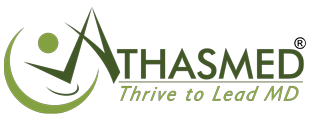
When I think of the physicians that I have known who I find truly inspirational, it is their soft skills, in addition to their hard skills, that truly set them apart. They might have been world famous, but their humility, compassion, humor, ability to listen resulted in patient care and leadership that transcended the science of medicine.
Our training in medicine is focused on building a huge body of knowledge and learning how to apply that knowledge in the most effective way. We usually see these as clinical skills that are specifically related to our field of expertise and and are acquired through our education and training. These skills also can be referred to as our hard skills.
On the other hand, there are other skills that we may innately possess or we have developed by modeling behaviors that we have observed in others. We may put these to use on a regular basis, not even realizing that they represent a very important part of how we practice medicine and interact with others. Not only are they valuable in our professional lives, but they can stand us in good stead in our personal lives. They are often known as soft skills, which is certainly an unfortunate misnomer.
These skills can be categorized into the following six broad, somewhat fluid categories. I have highlighted each one with skills that are critical in the practice of medicine.
Soft Skill Categories
Communication Skills
- Listening
- Feedback
- Clarity
Interpersonal Skills
- Empathy
- Compassion
- Humor
Inner Skills
- Self-awareness
- Curiosity
- Positivity
Creativity Skills
- Imaginative
- Open-mindedness
- Able to reframe
Leadership Skills
- Integrity
- Emotional Intelligence
- Humility
Professional Skills
- Collaboration/Teamwork
- Respect for self and others
- Cultural Awareness
What are your Soft Skills?
Take the following assessment to see what are your current soft skills. My physician clients find this exercise eye-opening and often empowering. It allows them to put a name and a value to what was previously an amorphous collection of poorly appreciated skills that they use on a daily basis. The mere fact of acknowledging these abilities is a great boost to confidence and self-respect.
Being able to name what was previously intangible also can bring clarity to what may be missing in challenging interpersonal communications. For example, recognizing that a colleague appears to lack curiosity can help kick the mind out of frustration with the the other’s person’s lack of curiosity and into a more analytical, less emotional mindset. The problems becomes: “How can I have a more productive conversation with a person who is not curious?” rather than “I am sick of dealing with this boring person.”
Doing this assessment also creates an opportunity for growth. Seeing the gaps in their soft skills can spur physicians into exploring what other talents they might need to function better in their clinical, managerial and leadership roles. Note that the skills describing a good boss – empathy, compassion, vulnerability; gratitude; positivity; awareness and self-care-outlined in this McKinsey Organization blog, are all what we might call soft skills. Yet, it is hard to see how practicing without these skills could lead to optimal outcomes whatever the physician’s task at hand.
Above all, having an awareness of and recognizing the value of soft skills is the most important first step on the path to building qualities that impact patient care, interpersonal interactions and leadership roles.


